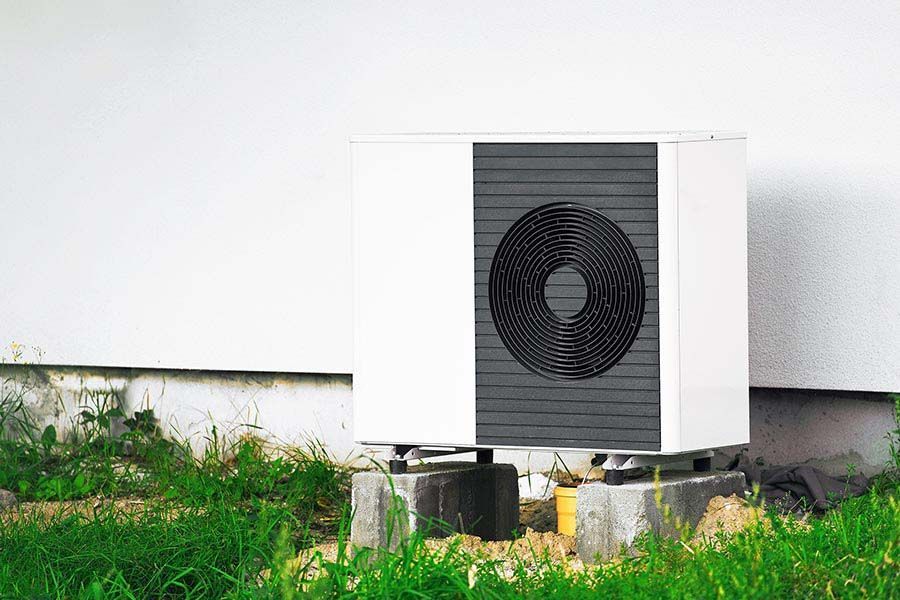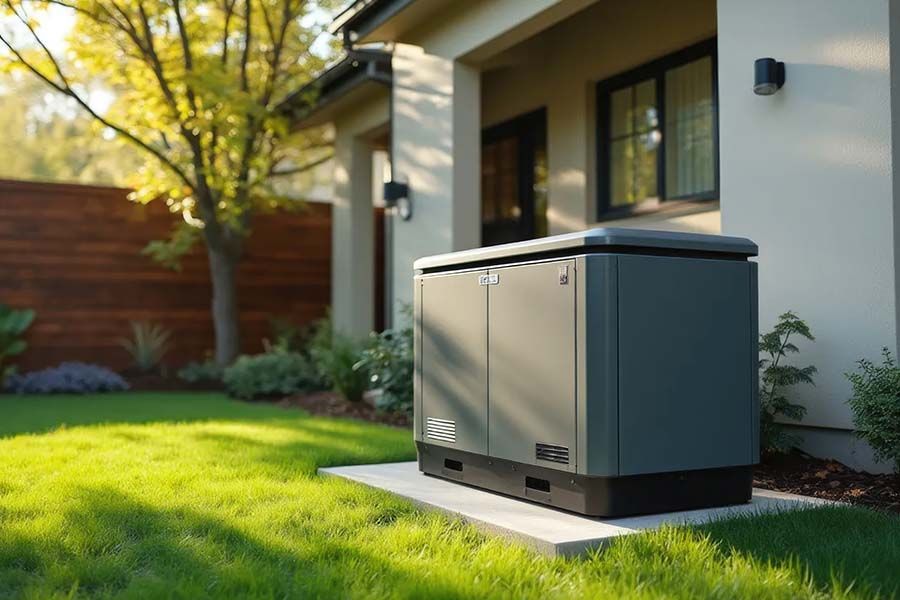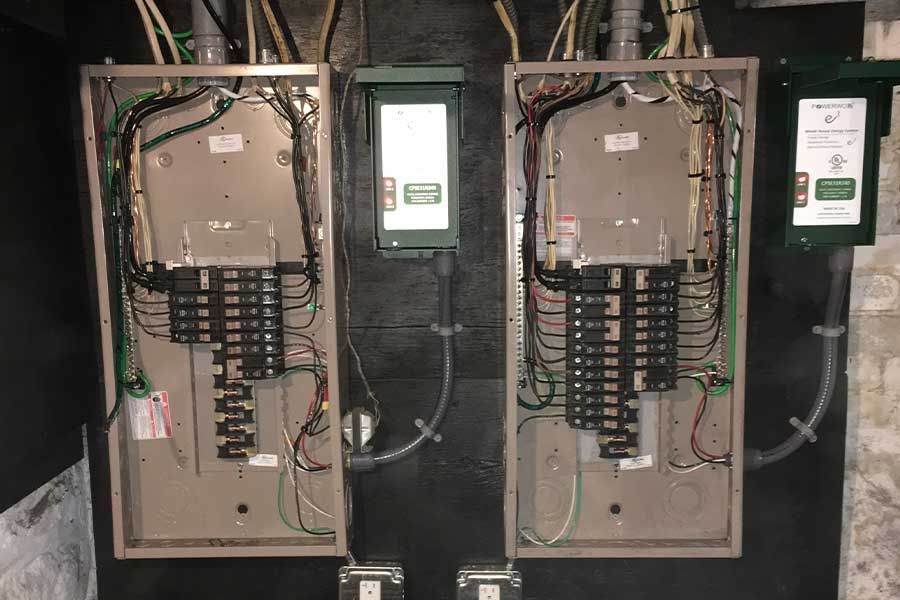8 Common Residential AC Problems and How to Fix Them
Understanding your AC’s quirks, recognizing common problems, and knowing how to fix them can save you time, money, and discomfort. Whether it’s your AC not cooling, poor airflow, or strange noises disrupting your peace, each issue has a specific cause and solution. You might notice frequent cycling or even water leakage, and these can indicate deeper issues that need attention. If bad odors or thermostat problems are plaguing your system, it’s crucial to address them promptly. And let’s not forget high energy bills, often a sign of inefficiency. So, how do you tackle these issues efficiently?
AC Not Cooling
One of the most frustrating issues you can encounter with your AC is not cooling your home effectively. This problem can stem from several common causes you can often address yourself. First, check if your AC has a dirty filter. A clogged filter restricts airflow, making it harder for your AC to cool your home. Replace or clean the filter regularly, ideally once a month during peak usage times, to keep your system running smoothly.
Another potential issue is a refrigerant leak. The refrigerant is essential for the cooling process, and if there’s a leak, your AC won’t be able to cool effectively. You might notice warm air blowing from the vents or ice forming on the refrigerant lines. If you suspect a refrigerant leak, it’s best to call a professional. They can locate the leak, repair it, and recharge your system with the correct amount of refrigerant.
Poor Airflow
Poor airflow from your AC can make your home uncomfortable and indicate underlying issues that need addressing. One common cause is blocked vents, which restrict airflow and reduce efficiency. You should check your home’s vents to ensure they’re open and not obstructed by furniture or other objects. Sometimes, the solution is as simple as rearranging your space.
Another frequent culprit is dirty filters. Over time, filters collect dust and debris, which can block airflow. You should replace or clean your filters at least once every three months or more often if you have pets or allergies. This not only improves airflow but also boosts air quality.
Consider these signs of poor airflow:
- Uneven room temperatures: Some rooms feel much cooler or warmer than others.
- Weak airflow: Little to no air comes out of the vents when the AC is running.
- Increased dust: More dust settles on surfaces, indicating that filters may be clogged.
Checking and addressing these issues can help maintain your AC’s performance and comfort your home. If problems persist, it might be time to call a professional for a more thorough inspection.
Strange Noises
Hearing strange noises from your AC can be alarming and often points to mechanical issues that need immediate attention. One common cause of unusual sounds is loose components. When parts inside your AC unit become loose, they can rattle or bang against each other, creating a variety of noises. To fix this, turn off the power to the unit and inspect the interior for any loose screws, bolts, or other components. Tighten anything that appears to be out of place. If you’re uncomfortable doing this yourself, it’s wise to call a professional.
Another frequent culprit is fan obstruction. If debris like leaves, dirt, or even small animals gets into your AC unit, it can obstruct the fan. This not only causes strange noises but can also damage the fan blades. To address this, first, turn off the unit's power. Then, open the casing and carefully clean out any debris. Make sure the fan blades can rotate freely. Regularly checking and cleaning the area around your AC can prevent this issue.
Frequent Cycling
Frequent cycling of your AC unit can indicate underlying issues that must be addressed promptly. When your air conditioner turns on and off too often, it can cause unnecessary wear and tear, impacting its efficiency and lifespan. Here are a few common causes:
- Dirty filter: A clogged air filter restricts airflow, causing the AC to work harder and cycle more frequently. Regularly checking and replacing the filter can resolve this issue.
- Incorrect sizing: An AC unit that’s too large or too small for your home will cycle more frequently. A unit that is too large cools the space quickly but doesn’t run long enough to dehumidify the air properly. Conversely, a unit that’s too small runs constantly to meet the cooling demand.
- Thermostat issues: If your thermostat is malfunctioning or placed in a poor location, it can cause the AC to cycle irregularly. Make sure it’s positioned away from direct sunlight and other heat sources.
Leaking Water
Leaking water from your AC unit can signal problems that need immediate attention to prevent further damage. One common cause is a drain clog. The drain line removes condensation from your unit, but over time, it can get clogged with dirt and debris. When this happens, water backs up and leaks out. To fix this, locate the drain line, usually a PVC pipe, and use a wet/dry vacuum to clear the obstruction. It’s a good idea to periodically flush the drain line with water and vinegar to maintain clear passage.
Another issue could be a frozen evaporator. When the evaporator coil gets too cold, it can freeze and eventually melt, causing water to drip. Low refrigerant levels or restricted airflow often cause this freezing. If your air filters are dirty, check and replace them, as clean filters promote proper airflow. If the problem persists, call a professional to check the refrigerant levels and inspect the overall system.
Bad Odors
Unpleasant odors from your AC unit can make your home uncomfortable and often indicate underlying issues that need addressing. One common cause of bad smells is dirty filters. When filters aren’t changed regularly, dust and debris can accumulate, leading to musty odors circulating throughout your home. To fix this, replace or clean your filters every one to three months.
Another culprit is mold growth. Mold can develop inside your AC unit, particularly with excess moisture. This not only creates a foul smell but can also pose health risks. To tackle this, clean the evaporator coils and ensure proper drainage to prevent moisture buildup. Sometimes, you might need to call a professional to thoroughly clean the unit and eliminate mold.
Here are a few signs that your AC might be the source of bad odors:
- Musty smell: Often indicates mold growth.
- Dirty sock odor: Usually caused by dirty filters.
- Rotten egg smell: This could signal a more serious issue, like a gas leak.
Thermostat Issues
If your home isn’t reaching the desired temperature, your thermostat could be malfunctioning. First, check if the display is working correctly. If it's blank or unresponsive, the issue could be a simple battery replacement. Replace the batteries and see if this resolves the problem. If the display is still not working, you might face wiring problems.
To inspect the wiring, turn off the power to your thermostat at the breaker panel. Carefully remove the thermostat cover and check for any loose or disconnected wires. Make sure all wires are properly connected and securely attached. If you notice any damaged wires, you’ll need to replace them. It’s best to refer to your thermostat’s manual for specific instructions.
Sometimes, the problem isn’t the thermostat itself but the location. If it’s placed where direct sunlight hits it or near heat-producing appliances, it can cause inaccurate readings. Consider relocating the thermostat to a more central location away from drafts and heat sources.
Lastly, if you’ve tried these steps and your thermostat still isn’t functioning correctly, it might be time to call a professional. They can diagnose and fix any underlying issues, ensuring your home stays comfortable.
High Energy Bills
Are your energy bills skyrocketing despite your efforts to control your air conditioning usage? High energy bills can be frustrating, especially when trying to be mindful of your AC usage. Several common issues could be driving up your costs.
- Dirty filters: When filters are clogged with dust and debris, your AC must work harder to push air through, increasing energy consumption.
- Incorrect sizing: If your air conditioner is too large or too small for your home, it won’t operate efficiently. An oversized unit will cycle on and off frequently, wasting energy, while an undersized unit will run continuously, driving up your bills.
- Poor maintenance: Failing to service your AC regularly can lead to various inefficiencies, from refrigerant leaks to worn-out parts, all of which can make your system less energy-efficient.
To address these issues, dirty filters must be checked and replaced every one to three months. Consult a professional to ensure your AC is correctly sized for your home. Finally, schedule regular maintenance checks to keep your system running efficiently. These steps can help lower those high energy bills and keep your home comfortable.
Conclusion
To keep your AC running smoothly, you must address common issues like cooling problems, poor airflow, strange noises, and frequent cycling. Don’t forget to check for water leaks, bad odors, thermostat malfunctions, and high energy bills. Regular maintenance is vital: replace filters, clear vents, tighten loose parts, and inspect for refrigerant leaks. When in doubt, consult a professional for bigger tasks. With consistent care, your AC will stay efficient, saving you energy and maintaining your comfort.
Frequently Asked Questions
You might also like







